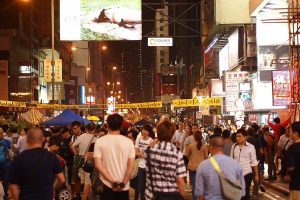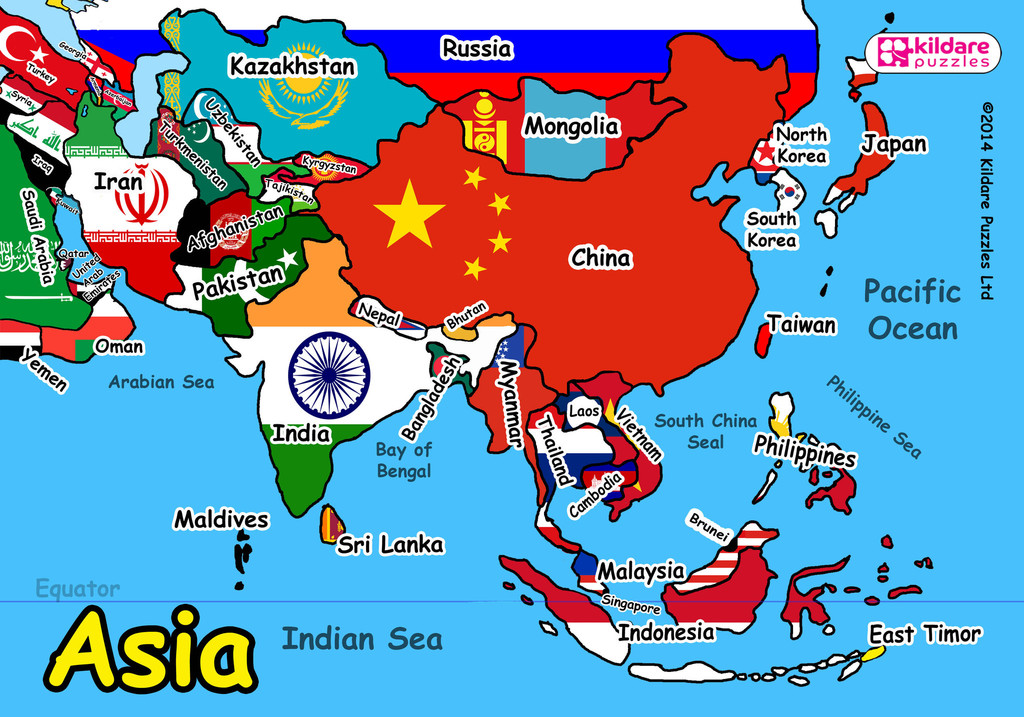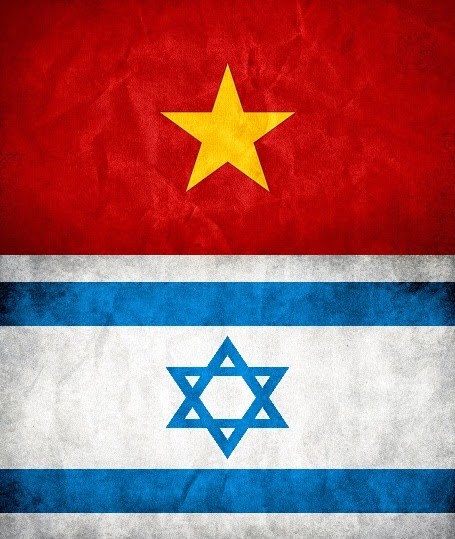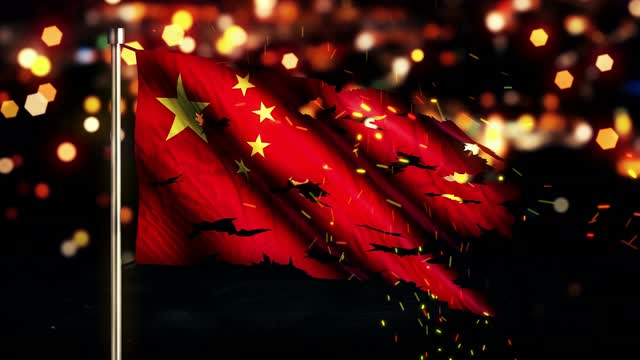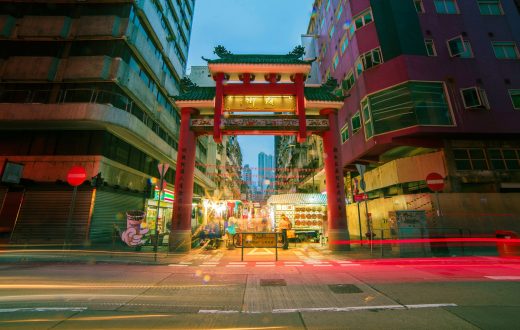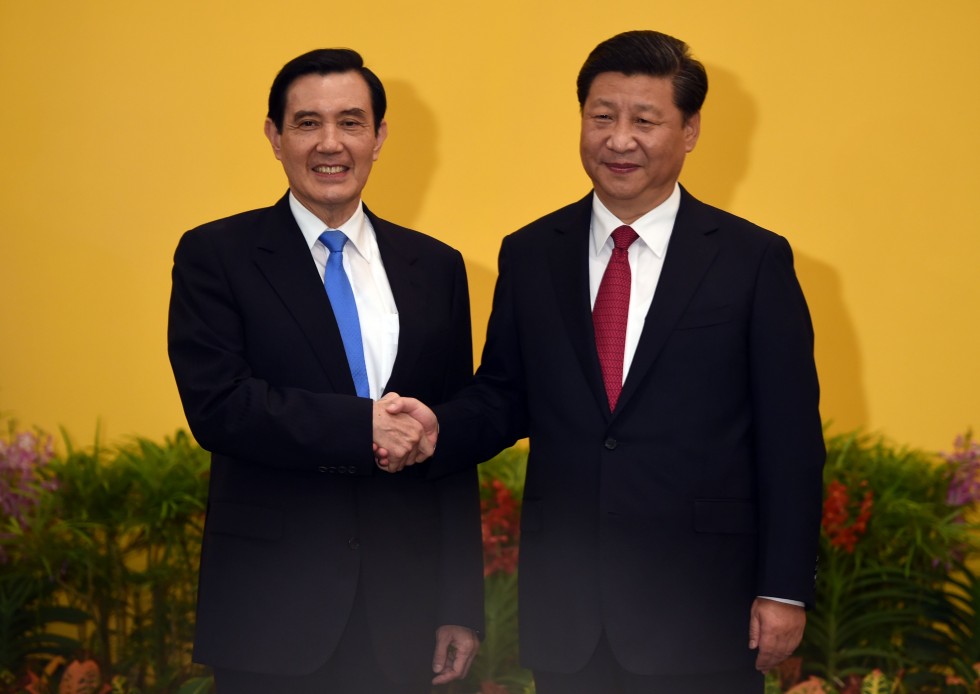Hong Kong Special Administrative Region is located in the south of China and has special status in China. Contrary to popular belief, the region is not only composed of Hong Kong city, but also includes some of the surrounding lands. In addition, Hong Kong has its own self-management system and is directly linked to China in the fields of foreign relations and defense. The total population of Hong Kong is around 7 million 500 thousand people. In addition, Hong Kong is one of the most important financial centers in the world. Over the years, the region has come to the forefront in areas such as transportation, trade and transportation between the east and west axes, and has become the logistics hub for product traffic in South East Asia. According to the end of 2018 data, Hong Kong’s Gross Domestic Product (GDP) was $ 363 Billion and achieved 3% economic growth. It ranks 36th in the global GDP. Widespread poverty and instability were the concepts that could not be overcome for the “Giant in the East”, until former Chinese President Deng Xiaoping initiated a reform process in 1978 to shape China and perhaps the whole world. The Japanese Army’s occupation of almost all important cities of China including the capital city of Nanjing and Hong Kong, caused such indignity in the minds of Chinese nation. Moreover, numerous sufferings during the World War II led to the formation of a national identity under the leadership of Mao Zedong through the further process. With the beginning of the reform process have led by Deng Xiaoping, China has made significant progress in many areas particularly in the economic and military fields over the past 41 years. In this context, with the announcement of the Belt and Road Initiative by the current president Xi Jinping in 2013, the success of the “New Chinese Century” breakthrough has been successful in the international arena as well as on the mainland. Hence, China has made a successful headway for the first time to become a global power through modern history.
Hong Kong is one of the regions with the highest level of prosperity compared to many countries and cities in Southeast Asia. According to many experts, the high level of prosperity was due to the fact that Hong Kong had been under British rule for many years. Also, as a common consideration has been advocated by many, Hong Kong’s weathy position emerged throughout the following years thanks to its structural development process as it is isolated from Chinese Socialism. However, the increasing prosperity level as a result of the great economic achievenement experienced over the last 40 years has led to a new dimension in these debates. In fact, according to World Bank data announced in 2017, 753 million people use to live below the poverty line before 2000 in China whilts in 2017, this figure decreased to 43 million in 2017.[1]
In the light of this information, it will not be wrong to be bolstered that the Chinese administrations have made great progress in the distribution of welfare among the society. Therefore, Hong Kong incidents are more of a political and social crisis triggered by the identity crisis of the younger generation rather than an economic crisis. Therefore, it would not be wrong to say that the region is partially isolated from China, not only on the basis of the management system but also on sociological basis. As we mentioned at the beginning, the emergence of Hong Kong under the British administration in 1842 could be evaluated as a significant factor in the emergence of catastrophic social crisis taking place at the moment. With the handover of the region to the Chinese administration by the British in 1997, consensus was reached on many items and the region started to be managed in line with the principle of “One Country, Two Systems framework. As it is known, the Chinese Communist Party is an absolute power within the borders of PRC and the party program has been strictly implemented in the Chinese soil. However, the Special Administrative Region of Hong Kong, according to the 1997 agreement, has its own legal system and is governed by a multiparty system, just like in worldwide democracies.
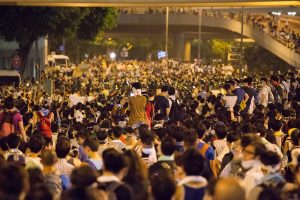 According to a study conducted in Hong Kong, the majority of people define their identity as “Hong Kongers” rather than “Chinese“.[2] The young population plays such crucial role in the protests that is taking place against the Extradition Bill since the end of March and evolved into a serious mass rebellion movements on the streets of Hong Kong over the past 4 months. Hence, as a striking point most of the protesters are university students. Joshua Wong, a well-known activist in the region and worldwide hence forth, plays an important role in organizing university students. In addition, he is the current Secretary General of one of the political parties in Hong Kong called Demosist. The Demosist mission, which includes young activists, plays a major role in the protests calls itself pro-democratic movement. Also, they have determined the party mission as “freeing Hong Kong from the pressure of the Chinese Communist Party and achieving a political and economic environment free from Chinese sphere of influence ”.[3]
According to a study conducted in Hong Kong, the majority of people define their identity as “Hong Kongers” rather than “Chinese“.[2] The young population plays such crucial role in the protests that is taking place against the Extradition Bill since the end of March and evolved into a serious mass rebellion movements on the streets of Hong Kong over the past 4 months. Hence, as a striking point most of the protesters are university students. Joshua Wong, a well-known activist in the region and worldwide hence forth, plays an important role in organizing university students. In addition, he is the current Secretary General of one of the political parties in Hong Kong called Demosist. The Demosist mission, which includes young activists, plays a major role in the protests calls itself pro-democratic movement. Also, they have determined the party mission as “freeing Hong Kong from the pressure of the Chinese Communist Party and achieving a political and economic environment free from Chinese sphere of influence ”.[3]
In the light of these developments, it should not be underestimated that the situation cannot be evaluated only in the context of the Extradition Bill. Neglecting the historical past of the region would be a huge mistake on the figuring out why these demonstrations taking place. The formation of the crisis has prodound roots with the history of Hong Kong SAR. One of the most important proofs of this situation is that eventhough the protests turning into acts of violence, the demonstrations still seem to be extremely far from losing severity despite the Hong Kong government has announced that it has withdrawn the contentious bill. However, this huge demonstrations are not taking place for the first time in Hong Kong SAR. In 2014, a series of street incidents pop up as a result of the Beijing government’s decision to examine the candidates for the elections in Hong Kong. Protesters put forward that this decision was contrary to the agreement made in 1997 after the handover of Hong Kong to China and that the principle of a State Two Systems was violated acutely. Although the Hong Kong Special Administrative Region is governed by its own legal system, the Beijing government’s decision has led to controversy over the extent to which Hong Kong’s freedom of choice was at that time.
On August 13, Hong Kong Prime Minister Carrie Lam warned that Hong Kong would not be dragged into the abyss after protesters occupied the airport for two days.[4] Neverthless, these statements did not have an impact on decreasing the high tension in the region.
In the following days, the protesters are still continuing to fill the squares and clash with the police by claiming that the steps of HK government are not enough. As a result, the protesters demanded a 5-item list of requests to the Hong Kong administration. These are as follows; The complete withdrawal of the proposed extradition bill, the government to withdraw the use of the word “riot” in relation to protests, the unconditional release of arrested protesters and charges against them dropped, An independent inquiry into police behaviour and implementation of genuine universal suffrage.[5] By demanding the last one, the protesters are seeking to undermine Beijing’s influence in the Hong Kong administration. The fact that the 1200-person commission, which is thought to be under direct influence of Beijing, has a crucial impact on electing the Hong Kong leader in protesters opinion. The response of the Chinese administration to these demands has been harsh. The administration continues to definitively call the protesters “terrorists who attempt to disrupt the public order”.
Besides, there are numerous announcements made by Xi Jinping administration upon the issue flashing that China’s patience is limited. In addition, the Commander of the Chinese People’s Liberation Army in Hong Kong Garrison has recently made similar statements. Concerns started to grow about how seriously Beijing has started to take the issue after the images of the Chinese People’s Liberation Army stacking up in Shenzhen city, 27 kilometers from Hong Kong, are particularly concerned by the Western media.
The International Dimesion of the Hong Kong Protests
As with the rest of the world, the Trump administration is closely monitoring the events in Hong Kong. As a result of the lack of compromise in trade wars and the increasing friction, US President Trump tends to use the situation in Hong Kong in his favor. Trump criticized the Beijing government’s stance and warned that protesters should be treated better. Trump even went one step further, calling on Xi Jinping to be cautious, referring to the Tiananmen events in Beijing in 1989. Ben Cardin, a well-known republican senator, made similar statements to the Beijing administration.[6]
In August, when the demonstrations were intensifying, President Trump announced an additional tax decision on Chinese products which comprises $ 300 billion. As a result of this decision, the fear that the trade wars between the two giants will be accelerated again in the further process. The Chinese administration interpreted Trump’s attitude as a kind of “economic blackmailing feeding from the Hong Kong events.” China perceives every step taken by the US kind of an intervention on its internal affairs in relation to the events in Hong Kong and declares that it will not hesitate to take serious initiatives if the same attitude continues. However how strong Xi Jinping’s hand is at the point of taking steps is still a matter of doubt. It is possible that a wrong step that could be taken in this direction may convert the situation even more difficult to overcome and a bottleneck.
Protracted Political Deadlock and The Consequences of Beijing’s Possible Intervention on the Crisis
Since the protests began on March 31, there has been no sign about tensions on losing its impact in the streets of Hong Kong and the chaos is strengthen. In the early stages of the protests, the Chinese government took a moderate stance. However, when the flames of the events flared up rather than to be extinguished, Xi administration began to adopt a more threatening attitude toward the protesters. At first, the Chinese administration followed a policy that preferred to wait for events to settle. However with the increasing dose of violence on the streets and protests turning the city into chaotic environment, Xi Jinping’s administration announced that it is one of the main duties of Beijing, ensuring the security of residents in Hong Kong.
We have already mentioned that the Chinese Army is located in the Shenzhen which is 27 far from Hong Kong as the situation has become increasingly pessimistic and inexorable for China. If consequences of a possible bloody intervention to be considered in Hong Kong, it could be verbalized that the Chinese government has the intention to intimidate protesters rather than making a bloody intervention to protesters whose majority are university students and have many goals for their future life. Expecting a gradual softening about the protests in this crisis in which the Chinese People’s Liberation Army has demonstrated its seriousness, is a policy that is understandable for Chinese rule in the process so far. However, it is also important to underline that serious threatening statements from the Chinese Communist Party officials continue to come to the fore in parallel with the gradually rising violation. Also, figuring out the reflex of Chinese authorities is still a misery on this situation. In addition, the occurrence of such an initiative will have serious consequences for China, both nationally and internationally. It is a strong possibility that the city of Shenzhen, which is called the showcase of modern China, which is located near the city as a result of the situation completely out of control in Hong Kong, also would its share from the chaotic environment. In such a scenario, the crisis may not be limited to just Hong Kong. Long Yongtu, former Chief Negotiator for Hong Kong Trade, said that Shenzhen is at risk in such a situation. China, which has increased its influence in the international arena with its breakthrough in recent years, does not want to damage the prestige it gained globally as a result of all the efforts and development during the reform process started in 1978 under the leadership of Deng Xiaoping.
For this reason, the image of “Calm Power” and the concept of “Peaceful Rising which the Chinese administrations have succeeded in creating in the international arena, are seriously tested with the outbreak of Hong Kong events.
China’s Current Challange: The Problem of Preserving Peaceful Rising and the Calm Power Image
The expansionist policy of the USSR during the Cold War and the fact that China was founded on the foundations of socialism inevitably led to the emergence of an aggressive country and administration perception towards China. However, as Deng Xiaoping had been pioneered a new vision opened the doors of the country to the world by starting the new reform process in order to break this situation, the perception of peaceful upswing started to gain ground in the international society regarding China. Moreover, China’s efforts to develop economic relations, especially with the western countries, has led to an increase in global influence of it and thus changed the perception of “China the unknown”. With the announcement of the Belt and Road Initiative by Xi Jinping in 2013, these concepts found a strong response globally. In the ensuing process, China has approached and is approaching the countries it is associated with with the promise of prosperity. Particularly in view of the issue of political influence, the Chinese administration is careful not to cause any creation of the image of a “new modern colonialism”. On the other hand, it is another important issue for China to be voiced among the international public opinion that the Belt and Road Initiative is a kind of debt trap.
Therefore, any possible intervention in Hong Kong can lead to irreversible loss of prestige and more importantly to completely eliminate the image of “calm power built upon the political ground”. The image of China that has failed to achieve absolute stability in its domestic policy while promising the world prosperity will seriously affect relations in almost all areas, particularly economic and political relations. In addition, Hong Kong’s special status will become degenerated if the Chinese army intervenes with army. According to the 1997 Hong Kong’ handover to China agreement, the Beijing government can only send troops to the region only if the Hong Kong government directly requests it.
However, if the intervention is made without any request, this movement will be seen as “a direct occupation” in the eyes of the international community. US President Trump recently threatened China to if they act with such an intervention, international agreements will be criticized.
A Hong Kong with its streets surrendered by the anarchy, an image that has been severely damaged by the loss of all its value on the international level, and the Chinese economy, which has suffered the worst performance since 1992 with a growth rate of 6.2% in the last quarter, would not be the Beijing administration’s favour at the moment. However, it should be noted that the reaction of the Chinese administration on the protests is still unpredictable.
[1] http://povertydata.worldbank.org/poverty/country/CHN
[2] https://timesofmalta.com/articles/view/beijing-may-have-already-lost-hong-kong-as-a-city.729080#.XVhbW-WuCX0.twitter
[3] https://www.demosisto.hk/about?lang=en
[4] https://www.businessinsider.com/carrie-lam-warns-hong-kong-abyss-protesters-airport-2019-8
[5] https://www.theguardian.com/world/2019/aug/13/what-do-the-hong-kong-protesters-want
[6] https://www.france24.com/en/20190819-usa-china-hong-kong-donald-trump-trade-deal-democracy-protests-tiananmen-square

